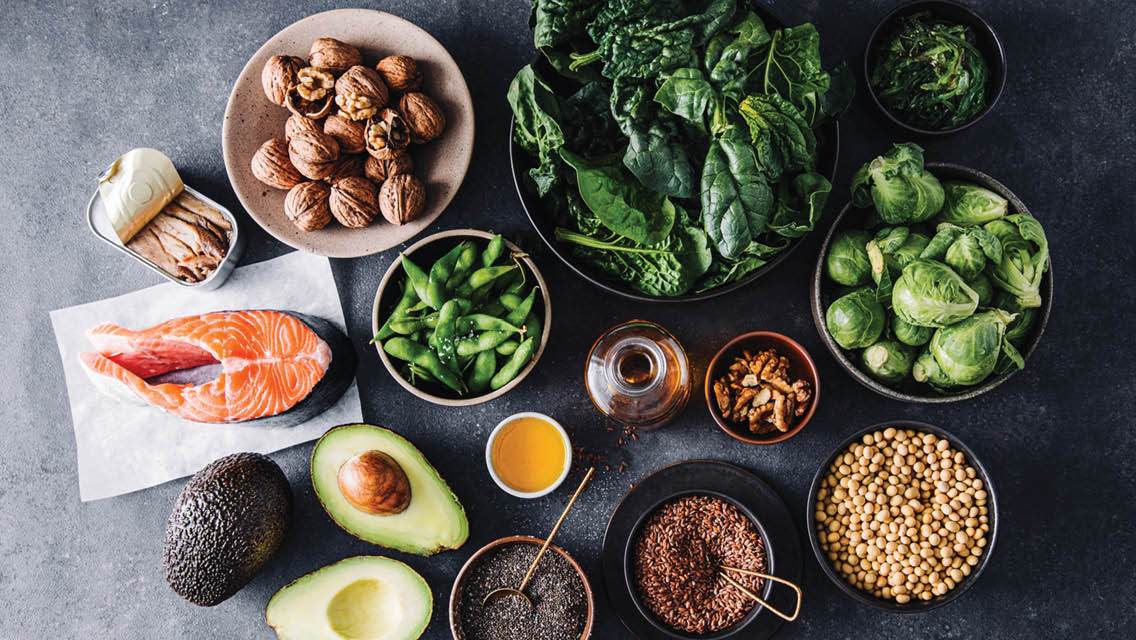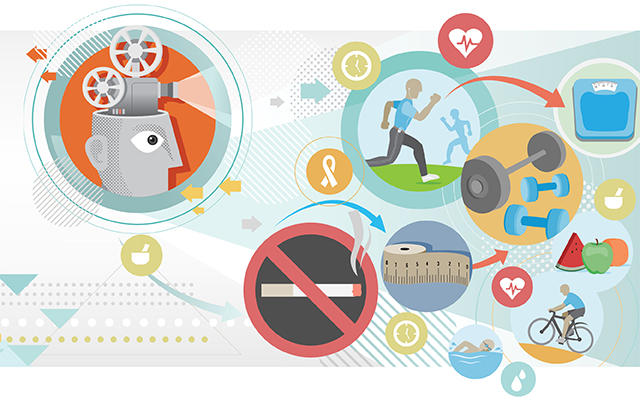- Cilantro has powerful properties that detoxify the body of heavy metals. Mercury and lead, for instance, have been shown to disrupt the brain’s dopamine-reward system, which can increase vulnerability to addiction.
- Grassfed and pastured beef are healthy sources of protein, a critical building block for the recovering brain. It needs vital amino acids to repair oxidative neurological damage, notes Arwen Podesta, MD. Compared with grain-fed beef, grassfed contains more conjugated linoleic acid (CLA), a natural trans-fatty acid that supports many healthy functions, including insulin regulation. Protein itself also keeps blood sugar stable, which is why Podesta recommends people have it with all meals, including breakfast.
- Walnuts are packed with protein, healthy fats, and fiber, making them a great on-the-go option for snacking. They help keep blood sugar steady and provide the brain with much-needed antioxidants and anti-inflammatory phytonutrients.
- Flaxseed is rich in omega-3 fatty acids and fiber; it also nourishes beneficial gut bacteria, supports the GI tract, and strengthens neurological health. Try adding ground flaxseed to your morning smoothie, or pair flaxseed crackers with cheese or nut butter for an afternoon snack.
- Hemp is a nutritional superfood. Hemp-seed oil is rich in fatty acids, which nourish the brain’s myelin sheaths, and gamma-linolenic acid (GLA), which supports hormonal health. Hemp seeds (also called hemp hearts) have a nutty flavor and are a great source of magnesium and zinc, two vital nutrients for addiction recovery.
- Lemon juice helps promote healthy digestion by stimulating bile production in the liver. In addition, a 2017 study found that mice that consumed lemon juice experienced reduced alcohol-related liver damage compared with a control group.
- Potato skin — whether on a russet, Yukon gold, sweet potato, or others — is a rich source of fiber and other vital phytonutrients. It also provides complex carbohydrates. When eaten a few hours after a meal that contains protein, these carbohydrates stimulate the body to produce the insulin it needs to create serotonin, helping to regulate mood and impulse control. (Note: Always stick with organic potatoes if you’re
going to eat the skin.) - Cold-water fish, such as salmon, mackerel, herring, and sardines, are some of the most potent sources of omega-3 fatty acids, as well as protein and vitamin D. Vitamin D has been shown to help modulate the brain’s dopamine circuits and contribute to the creation of serotonin. Look for canned fish that includes skin and bones — that’s where you’ll find most of the vitamin D.
- Whole grains, like steel-cut oats, brown rice, and barley, provide complex carbohydrates that are digested more slowly than their refined counterparts. This helps nurture beneficial gut bacteria and support satiety. They also supply calming minerals — selenium, potassium, and magnesium. And oats are a good source of tryptophan, a key ingredient in serotonin production.

Thoughts to share?
ADVERTISEMENT
More Like This
Beating Addictions, Mindfully
A new clinical trial reveals that mindful meditation may help you kick your smoking habit — for good.
What You Need to Know About Addiction and the Brain
Addiction is common — and it’s complicated.
5 Tips to Stay Sober
Quitting alcohol may not be easy, but it doesn’t have to be hard forever.




This Post Has 0 Comments